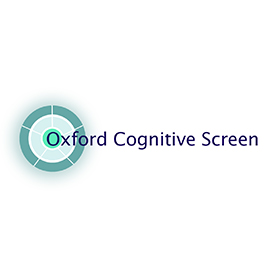Target Condition: Stroke
Population: Adult stroke survivors, including those with aphasia, hemiplegia and neglect
Respondent Type: Patients/Clinician
Assessment Domains:
- Language
- Praxis
- Number Processing
- Memory
- Spatial and Controlled Attention
Format: Paper-based and bedside-administered tool
^ Back to top


